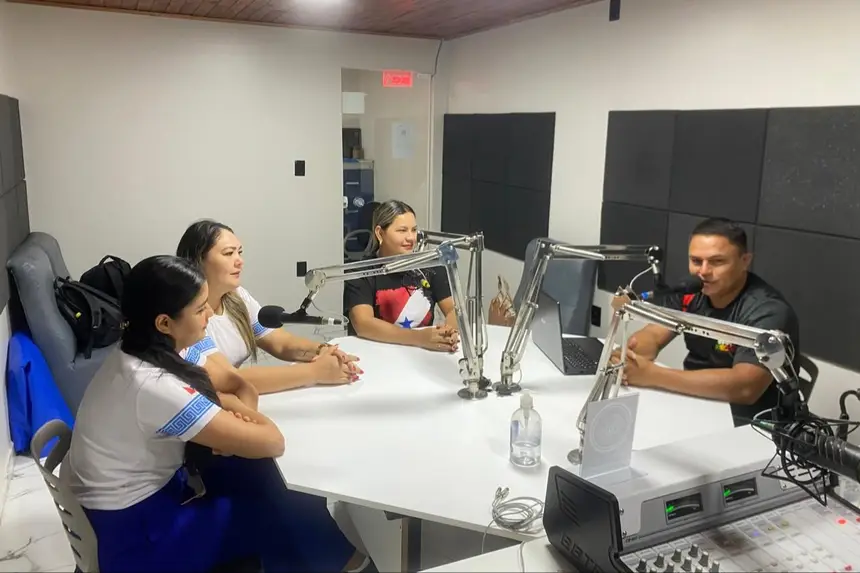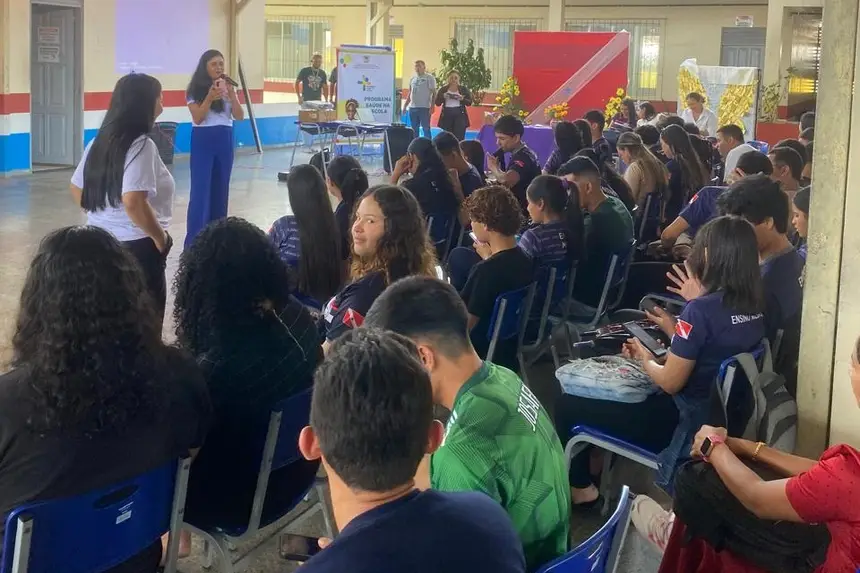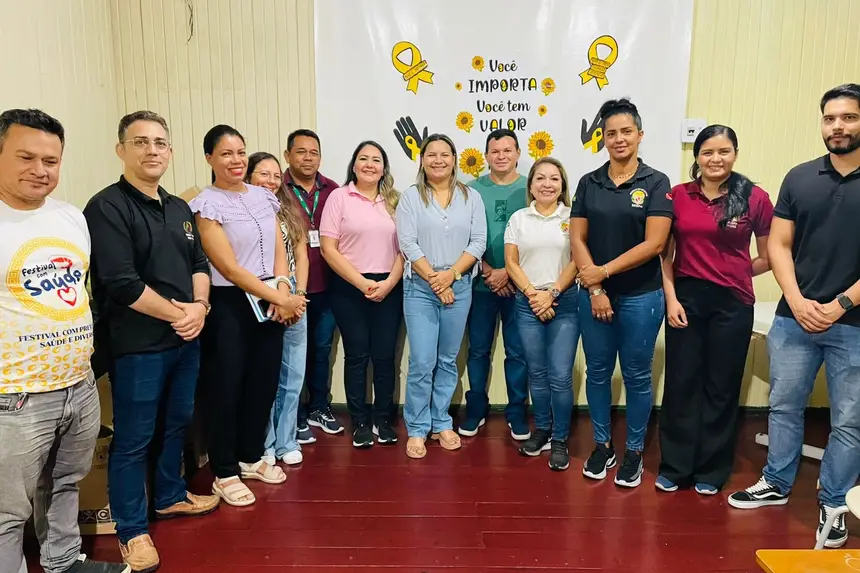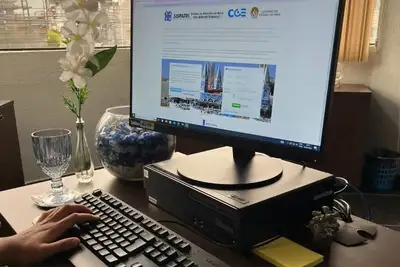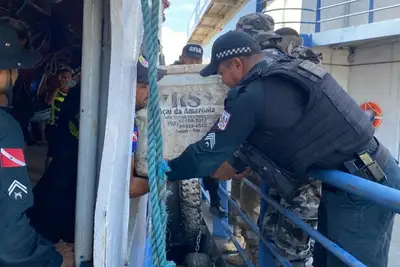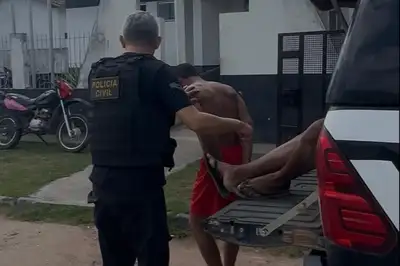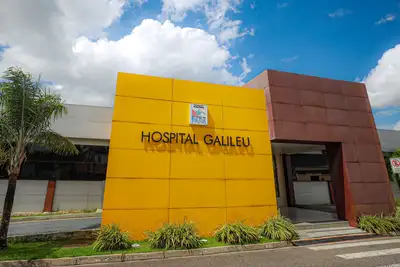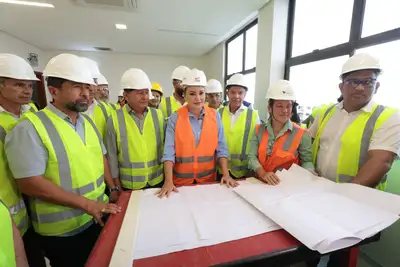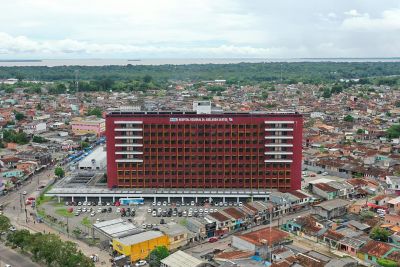Integrated action involves students in the prevention of Sexually Transmitted Infections
In the Marajó Archipelago, the initiative was carried out in the municipality of Afuá, offering testing, training, and educational actions
Sexually Transmitted Infections (STIs) are caused by various microorganisms and, when left untreated, can progress to more severe conditions, such as chronic infections, cancer, and death. These diseases also pose risks to pregnant women and their babies, as they can be transmitted during pregnancy or childbirth.
With the aim of breaking the transmission chain of STIs through early diagnosis, the State Department of Public Health (Sespa), through the 7th Regional Health Center (CRS), launched this week a pilot project of integrated action in the municipality of Afuá, in the Marajó Archipelago. The CRS supports nine municipalities in the region: Afuá, Cachoeira do Arari, Chaves, Muaná, Ponta de Pedras, Salvaterra, Santa Cruz do Arari, São Sebastião da Boa Vista, and Soure.
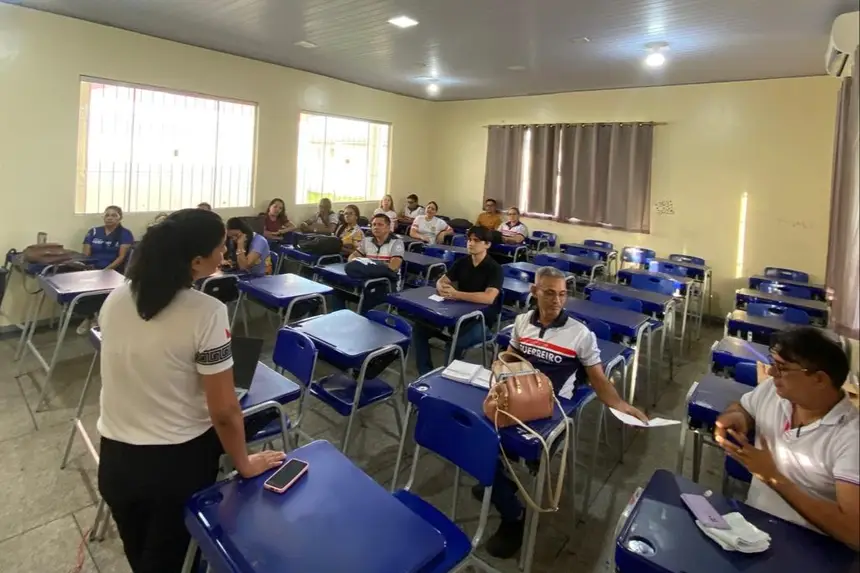
During the action, which took place from Monday to Friday (22 to 26), awareness activities were conducted through the Municipal Radio, highlighting the importance of early diagnosis and vaccination against silent diseases, such as HIV, syphilis, and hepatitis B and C.
Partnership - The initiative involved the participation of the Regional Coordination of the Health at School Program (PSE), the Regional Coordination of STIs/Viral Hepatitis, and the municipal team of nurses, technicians, and Basic Care Coordination, represented by Karoline Santos. Awareness activities were conducted with students from the 3rd year of High School and Youth and Adult Education (EJA) at the Leopoldina Guerreiro School. A total of 118 students from morning, afternoon, and evening shifts participated in the action, and 460 rapid tests for STI diagnosis were conducted.
In addition to actions in schools, the technical team visited local health units, providing practical guidance for the identification, reception, and follow-up of users diagnosed with STIs. Training was also provided for 10 Community Health Agents (ACS), reinforcing their role in the prevention and care of these infections.
Health education was strengthened with the training of 13 educators, who received information about the role of the PSE in the prevention of STIs and health promotion in schools. The importance of the ombudsman as a tool to improve access to health services and promote dialogue with the community was also highlighted.
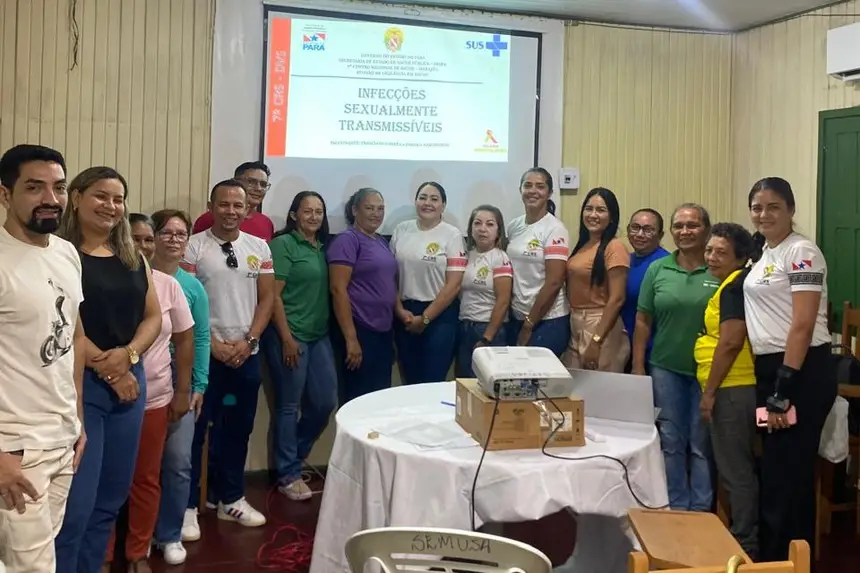
Quality of life - The regional coordinator of the PSE, Iane Guimarães, spoke about the importance of implementing these actions in both agreed and non-agreed schools. “The PSE encompasses various fronts and significantly contributes to improving the quality of life of the population. We noticed that many students were unaware of the consequences of STIs and the existence of rapid tests,” she reported.
The regional coordinator of STIs, Franciane Corrêa, emphasized the need for continuous awareness. “Demystifying taboos and encouraging the search for health services are essential actions. The use of condoms is still the safest method of prevention. The lack of adequate treatment can lead to serious complications and keep the transmission chain active,” she emphasized.
The action united strategies for prevention, diagnosis, and health education in the fields of Marajó, directly contributing to the strengthening of public health in the region.
Text: Ascom/Sespa


